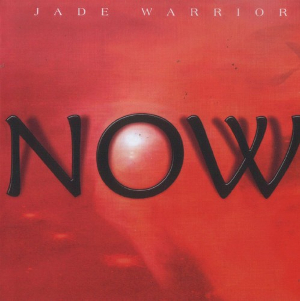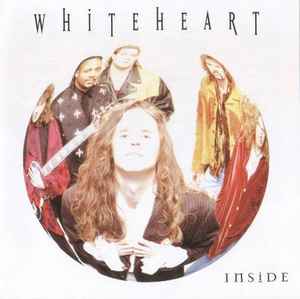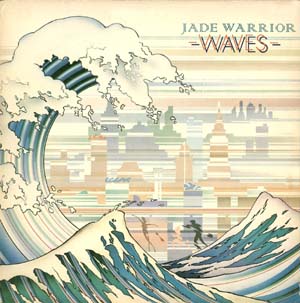
Gong are a psychedelic rock band that incorporates elements of jazz and space rock into their musical style. The group was formed in Paris in 1967 by Australian musician Daevid Allen and English vocalist Gilli Smyth. Band members have included Didier Malherbe, Pip Pyle, Steve Hillage, Mike Howlett, Tim Blake, Pierre Moerlen, Bill Laswell and Theo Travis. Others who have played on stage with Gong include Don Cherry, Chris Cutler, Bill Bruford, Brian Davison, Dave Stewart and Tatsuya Yoshida.

Jon Roy Anderson is an English-American singer, songwriter and musician, best known as the former lead singer of the progressive rock band Yes, which he formed in 1968 with bassist Chris Squire. Renowned for his alto tenor range, he was a member of the band across three tenures until 2008. Anderson was also a member of ARW along with former Yes bandmates Rick Wakeman and Trevor Rabin from 2016 to 2020. Together with bassist Lee Pomeroy and drummer Lou Molino III, they toured under the name Yes Featuring Jon Anderson, Trevor Rabin, Rick Wakeman.

Another Green World is the third solo studio album by Brian Eno, released by Island Records on 14 November 1975. The album marked a transition from the rock-based music of Eno's previous releases toward the minimalist instrumentals of his late 1970s ambient work. Only five of its fourteen tracks feature vocals, a contrast with his previous vocal albums.

Ozric Tentacles are an English instrumental rock band, whose music incorporates elements from a diverse range of genres, including psychedelic rock, progressive rock, space rock, jazz fusion, electronic music, dub music, world music, and ambient music. Formed in Somerset in 1983, the band has released over 30 albums selling over a million copies worldwide despite never having signed to a major recording label. Throughout many line-up changes over the years, co-founder and guitarist Ed Wynne has remained the only original member of the band. The band is now credited as one of the major influences of the UK festival scene's re-emergence, becoming particularly associated with the Glastonbury Festival and their handmade series of cassette releases, mostly sold at gigs and through a fan club.
Steve Tibbetts is an American guitarist and composer. He views the recording studio as a tool for creating sounds. Most of his albums include percussionist Marc Anderson.

Kill City is a studio album by the American musicians Iggy Pop and James Williamson, both formerly of the rock band the Stooges. It was recorded as a demo in 1975 but released in altered form in November 1977 by record label Bomp!.
Unit 4 + 2 were a British pop band formed in Hertfordshire, England, who had a number one hit on the UK Singles Chart in 1965 with the song "Concrete and Clay". The track topped the UK chart for one week.

Mad Dog is the fourth solo studio album by the English rock musician John Entwistle, who was the bassist for the Who at that time. It was his last solo studio album for six years, and the debut album by his band John Entwistle's Ox.
Patrick Campbell-Lyons, is an Irish composer and musician who is one half of the cult symphonic-rock band, Nirvana, formed in London in 1967.

Along the Red Ledge is the seventh studio album by American pop music duo Hall & Oates. The album was released on August 21, 1978, by RCA Records. The biggest hit from the album was "It's a Laugh". The follow-up single was "I Don't Wanna Lose You".

Jade Warrior were a British progressive rock band formed in 1970, originally evolving out of a band named July. The founder members were Tony Duhig (guitar), Jon Field and Glyn Havard. David Duhig, the younger brother of Tony Duhig, played on several of Jade Warrior's albums and in every live gig Jade Warrior ever performed - apart from the reunion concert of 2008. He died 1st December 2021.

Now is the fourteenth studio album by British band Jade Warrior. Released on 30 June 2008 on the WindWeaver label, it comes after a 15-year gap since their previous album, Distant Echoes.

Last Autumn's Dream is the third studio album by British band Jade Warrior. The album, released in 1972, yielded two singles, "A Winter's Tale" and "The Demon Trucker".

Jade Warrior is the debut self-titled and self-produced album by Jade Warrior, released in 1971 as part of the progressive rock movement. The album sets the scene for what the majority of the band's albums were to sound like, mixing various ethnic sounds with a progressive and otherworldly sound, as well as sudden changes between slow acoustic guitar melody, to distorted and heavy electric guitar with a faster tempo.

Released is the second studio album by British band Jade Warrior. It follows a progressive rock trend rather than the ultimately ethnic and world music sound of their previous album.
July are a psychedelic rock band from Ealing, London that was professionally active between 1968 and 1969, and reformed in 2009. The band's music was a blend of psychedelic rock and psychedelic pop, marked by lush harmonies, acoustic guitars, keyboards, and intricate lead guitar work. Although none of the band's records charted in the UK or the U.S., July are today best remembered for their songs "My Clown", "Dandelion Seeds", and "The Way", which have all been included on a number of compilation albums over the years.

Inside is the tenth album by the Christian rock band White Heart and the band's only album with John Thorn on bass guitar and also the final album for both lead guitarist Brian Wooten and drummer Jon Knox. The band stylized its name as Whiteheart for this album. It is the first of two albums released on Curb Records. The album was produced by Ken Scott, whose producing and engineering credits include the Beatles, Elton John, Supertramp and David Bowie. Whiteheart's sound was scaled back from the arena rock from their previous releases to a more modern rock sound. Music videos were made for "Even the Hardest Heart" and "Inside".

Waves is the fifth studio album by British progressive/experimental rock band Jade Warrior released in 1975 by Island Records. The album, written, recorded and produced by Jon Field and Tony Duhig with guest musicians consisted of one single composition which in the pre-CD days had to be divided into two parts to fit A and B sides.

Kites is the sixth studio album by British progressive/experimental rock band Jade Warrior released in 1976 by Island Records. Kites, more layered and complex than Waves, the duo's previous outing, took nine months to record.

Zimbabwe is an album by afro-rock band Assagai. Their second and final release, it was recorded at Nova Sound Studios in London for Vertigo Records, but was instead issued by Philips Records in 1971. The album features saxophonists Dudu Pukwana, Bizo Mngqikana, and Fred Fredericks, trumpeter Mongezi Feza, vocalist Martha Mdenge, drummer Louis Moholo, percussionists Terri Quaye and Smiley De Jonnes, and members of the progressive rock group Jade Warrior, who also contributed three compositions. Cover art was provided by Roger Dean, best known for his work with bands such as Yes, Asia, and Uriah Heep. In 1975, the album was reissued by the Music for Pleasure label with the title Afrorock.
















